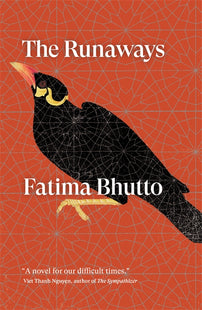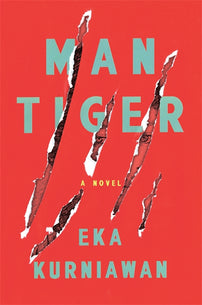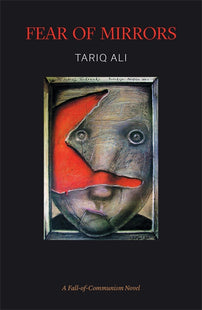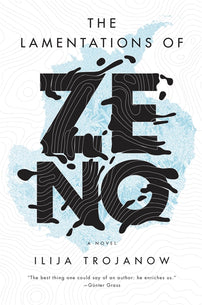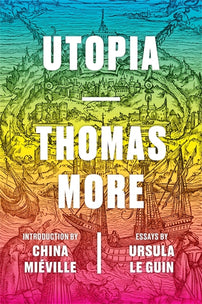40% off ALL fiction
All fiction is 40% off to celebrate the publication of Terminal Boredom and Tomorrow They Won't Dare to Murder Us.

In 2019 we launched Verso Fiction to publish international voices and revolutionary stories. Many of these novels and short stories are translated into English for the first time and tell stories that are not often heard, that experiment with style and form, and that introduce readers to new perspectives and memorable characters.
All of our fiction is 40% off until Friday, April 30 at 11:59PM EST.
The first English-language publication of the work of Izumi Suzuki, a legend of Japanese science fiction and a countercultural icon. In these darkly playful and punky stories, the fantastical elements are always grounded in the universal pettiness of strife between the sexes, and the gritty reality of life on the lower rungs, whatever planet that ladder might be on.
[book-strip index="2" style="buy"]A young revolutionary plants a bomb in a factory on the outskirts of Algiers during the Algerian War. The bomb is timed to explode after work hours, so no one will be hurt. But the authorities have been watching. He is caught, the bomb is defused, and he is tortured, tried in a day and sentenced to death by guillotine. A routine event, perhaps, in a brutal conflict that ended the lives of more than a million Muslim Algerians.
[book-strip index="3" style="buy"]This is an existential scream of a novel about loneliness (and the postal service!), written in Hjorth’s trademark spare, rhythmic and cutting style.
[book-strip index="4" style="buy"]At once a time-travelling horror story and a fugue-like feminist manifesto, this is a singular, genre-warping new novel from the author of the acclaimed Paradise Rot.
[book-strip index="5" style="buy"]ONLY AVAILABLE IN THE UNITED STATES
Anita lives in Karachi’s biggest slum. Her mother is a maalish wali, paid to massage the tired bones of rich women. But Anita's life will change forever when she meets her elderly neighbour, a man whose shelves of books promise an escape to a different world.
“A meticulous psychological study of who turns to radicalism and why … A provocative investigation of courage, and how it can foment either salvation or damnation.” – Anjali Enjeti, Minneapolis Star Tribune
[book-strip index="6" style="buy"]Will and Testament is a lyrical meditation on trauma and memory, as well as a furious account of a woman’s struggle to survive and be believed. Vigdis Hjorth’s novel became a controversial literary sensation in Norway and has been translated into twenty languages.
[book-strip index="7" style="buy"]Eka Kurniawan’s freewheeling imagination explores the turbulent dreams of an ex-prostitute, the hapless life of a perpetual student, victims of an anticommunist genocide, the travails of an elephant, even the vengeful fantasies of a stone. Dark, sexual, scatological, violent, and mordantly funny, these fractured fables span city and country, animal and human, myth and politics.
[book-strip index="8" style="buy"]This debut novel from critically acclaimed artist and musician Jenny Hval presents a heady and hyper-sensual portrayal of sexual awakening and queer desire.
[book-strip index="9" style="buy"]A wry, affecting tale set in a small town on the Indonesian coast, Man Tiger tells the story of two interlinked and tormented families and of Margio, a young man ordinary in all particulars except that he conceals within himself a supernatural female white tiger.
[book-strip index="10" style="buy"]Thoughtful and intimate, Fear of Mirrors unfolds an expansive plot that touches on the greatest political upheavals of the twentieth century. Its protagonist captures the hopes once roused by the Bolshevik Revolution and the hard realities that followed; Vlady Meyer is a mirror reflecting impeccably the intellectual milieu of an incomparable period.
[book-strip index="11" style="buy"]A long-suffering employee in a big corporation has summoned up the courage to ask for a raise. But as he runs through the looming encounter in his mind, his neuroses come to the surface: What is the best day to see the boss? What if he doesn’t offer you a seat when you go into his office?
[book-strip index="12" style="buy"]The Storyteller gathers for the first time the fiction of the legendary critic and philosopher Walter Benjamin. His stories revel in the erotic tensions of city life, cross the threshold between rational and hallucinatory realms, celebrate the importance of games, and delve into the peculiar relationship between gambling and fortune-telling, and explore the themes that defined Benjamin.
[book-strip index="13" style="buy"]The Lamentations of Zeno is an extraordinary evocation of the fragile and majestic wonders to be found at a far corner of the globe, written by a novelist who is a renowned travel writer. Poignant and playful, the novel recalls the experimentation of high-modernist fiction without compromising a limpid sense of place or the pace of its narrative. It is a portrait of a man in extremis, a haunting and at times irreverent tale that approaches the greatest challenge of our age—perhaps of our entire history as a species—from an impassioned human angle.
[book-strip index="14" style="buy"]Five hundred years since its first publication, Thomas More’s Utopia remains astonishingly radical and provocative. More imagines an island nation where thousands live in peace and harmony, men and women are both educated, and property is communal. In a text hovering between fantasy, satire, blueprint and game, More explores the theories and realities behind war, political conflicts, social tensions and redistribution, and imagines the day-to-day lives of a citizenry living free from fear, oppression, violence and suffering.
[book-strip index="15" style="buy"]From T. C. Boyle's account of early eco-activists, to Nathaniel Rich's comic fantasy about a marine biologist haunted by his youth, and David Mitchell's vision of a near future where oil sells for $800 a barrel—these ten provocative, occasionally chilling, sometimes satirical stories bring a human reality to disasters of inhuman proportions.
[book-strip index="16" style="buy"]The novel follows three generations of the aristocratic Uzeda family as it struggles to hold on to power in the face of the cataclysmic changes rocking Sicily.
[book-strip index="17" style="buy"]“Tariq Ali tells us the story of the aftermath of the fall of Granada by narrating a family sage of those who tried to survive after the collapse of their world. Ali is particularly deft at evoking what life must have been like for those doomed inhabitants, besieged on all sides by intolerant Christendom. This is a novel that have something to say, and says it well.” —The Guardian
[book-strip index="18" style="buy"]The second novel in Tariq Ali’s Islam Quintet is a rich and teeming chronicle set in twelfth-century Cairo, Damascus, and Jerusalem. The Book of Saladin is the fictional memoir of Saladin, the Kurdish liberator of Jerusalem, as dictated to a Jewish scribe, Ibn Yakub.
[book-strip index="19" style="buy"]Each year, when the weather in Istanbul becomes unbearable, the family of Iskender Pasha, a retired Ottoman notable, retires to its summer palace overlooking the Sea of Marmara. It is 1899 and the last great Islamic empire is in serious trouble. A former tutor poses a question which the family has been refusing to confront for almost a century: “Your Ottoman Empire is like a drunken prostitute, neither knowing nor caring who will take her next. Do I exaggerate, Memed?”
[book-strip index="20" style="buy"]The fourth novel in Tariq Ali’s Islam Quintet is set in medieval Palermo, a Muslim city rivaling Baghdad and Cordoba in size and splendor. The year is 1153. The Normans occupy Siqilliya, but Arab culture and language dominate the island and the court. Sultan Rujari (King Roger) surrounds himself with Muslim intellectuals, several concubines and an administration presided over by gifted eunuchs.
[book-strip index="21" style="buy"]Completing an epic panorama that began in fifteenth-century Moorish Spain, the concluding novel moves between the cities of the twenty-first century, from Lahore to London, from Paris to Beijing. The narrator is rung one morning and reminded that he owes a debt of honour. The creditor is Mohammed Aflatun—known as Plato—an irascible but gifted painter living in a Pakistan where “human dignity has become a wreckage.” Plato, who once specialized in stepping back from the limelight, now wants his life story written.
[book-strip index="22" style="buy"]Combining bitter satire, outrageous parody and uncanny hallucinations, this collection of José Saramago’s earliest stories from the beginning of his writing career attests to the novelist’s imaginative power and incomparable skill in elaborating the most extravagant fantasies.
[book-strip index="23" style="buy"]When a fire rips through the Venetian Arsenal in 1569, the enigmatic Emanuele De Zante, spy-catcher and secret agent, is betrayed by his lover, imprisoned, and accused of treason. Given the chance to escape, he embarks on a trans-European odyssey that will test his loyalty and force him to question even his own identity.
[book-strip index="24" style="buy"]In the dusty, ramshackle town of Suse lives A’ida. Her insurgent husband Xavier has been imprisoned. Resolute, sensuous and tender, A’ida’s letters to the man she loves tell of daily events in the town, and of its motley collection of inhabitants whose lives flow through hers. But the town is under threat, and as a faceless power inexorably encroaches from outside, so the smallest details and acts of humanity assume for A’ida a life-affirming significance, acts of resistance against the forces that might otherwise extinguish them.




